Prisoners of Geography: Read this now to understand the geopolitical context behind Putin’s Russia and the Ukraine Crisis: Ten Maps That Tell You Everything You Need to Know…
£7.90£9.50 (-17%)
Ten Maps that tell you everything your need to know about global politics – the million copy international bestseller
Geography shapes not only our history, but where we’re headed…
ON THE RUSSIA/UKRAINE CRISIS – What is driving Russia’s foreign policy? Why do Putin’s actions mirror those made in the past? Prisoners of Geography analyses the geographic weaknesses and historical invasions of Russia’s territories, exploring how they have ultimately shaped the decisions of its leaders past and present.
All leaders are constrained by geography. Their choices are limited by mountains, rivers, seas and concrete. Yes, to follow world events you need to understand people, ideas and movements – but if you don’t know geography, you’ll never have the full picture.
If you’ve ever wondered why Putin is so obsessed with Crimea, why the USA was destined to become a global superpower, or why China’s power base continues to expand ever outwards, the answers are all here.
In ten chapters and ten maps, Prisoners of Geography looks at the past, present and future to offer an essential insight into one of the major factors that determines world history.
It’s time to put the ‘geo’ back into geopolitics.
‘Like having a light shone on your understanding… I can’t think of another book that explains the world situation so well. – Nicolas Lezard, Evening Standard
‘Sharp insights into the way geography shapes the choices of world leaders.’ – Gideon Rachman, Financial Times
Ten maps; ten chapters:
Russia * China * United States of America * Latin America * the Middle East * Africa * India and Pakistan * Europe * Japan and Korea * the Arctic
Read more
Additional information
| Publisher | Elliott & Thompson Limited, 2nd edition (2 Jun. 2016) |
|---|---|
| Language | English |
| Paperback | 320 pages |
| ISBN-10 | 1783962437 |
| ISBN-13 | 978-1783962433 |
| Dimensions | 19.8 x 2.6 x 12.9 cm |

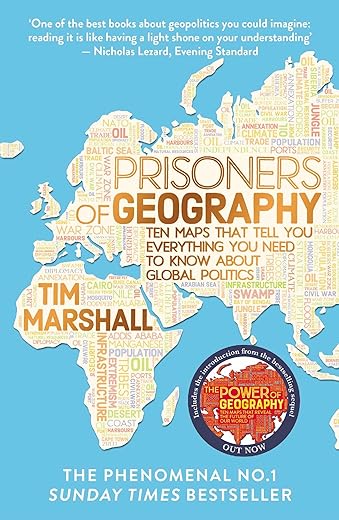
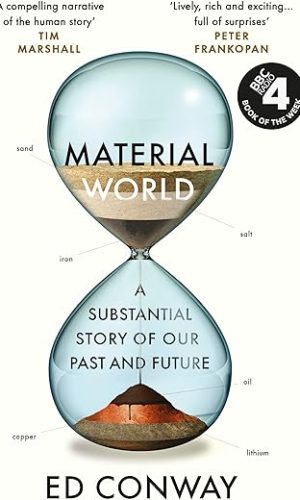

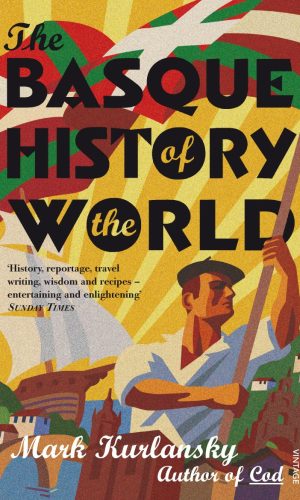



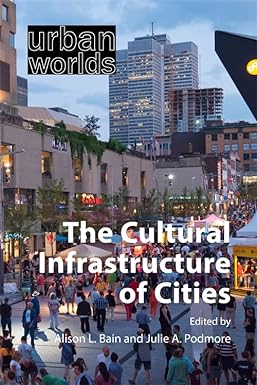
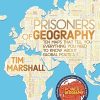
by A
Review: Tim Marshall’s Prisoners of Geography
I was fortunate to be enrolled into the SocialBookCo reviewer program and was sent Tim Marshall’s Prisoners of Geography to review.
Growing up I was always a devout reader. I loved books, loved collecting books, loved locking myself in my room and allowing my mind to enter new worlds, understand new concepts and live in the life of the characters of my book. Reading is what helped me get through most of my rocky childhood. I usually stuck to science fiction such as Lord of the Rings, Harry Potter, Divergent etc. Anything with action, adventure and a bit of suspense.
When I received Prisoners of Geography I was super excited as I didn’t really know a thing about geopolitics. Tim Marshall did not disappoint. The book begins with a super power that every person on this planet has heard of before, a place where power and principles stand true today as they have in the past, Russia.
My opinion of Russia and the culture and territory have changed in my 20s I must say the book has made me think extra hard of the plight Russia now faces. With its barren land, decline in population growth and restrictions from the other super powers of the world, the book made me feel a bit of concern and sincerity for Russia. By reading Prisoners of Geography, it sparked an interest to learn more and to research into what Tim Marshall describes as “six million square miles vast, eleven time zones vast; it is the largest country in the world”. Marshall begins each chapter by outlining the geographical barriers that influence the politics of the continent, the demographics and culture. He begins with the major bodies of water that help with foreign trade and go on to talk about deserts, mountains, plains, etc. Anything that affects the relationships of the country and its neighbors. He begins with Russia, which in my opinion was brilliant as Russia is so vast yet people such as myself from North America know very little. We know what history books have taught us and we know of the European countries as travel destinations but we don’t necessarily pay attention to the geopolitics of the countries and how it affects the country in which we live and their relationships. When we ask why it’s so hard to get visa’s, why oil prices fluctuate, why it’s cheaper to go to some places and not to others or why people are migrating it has to do in some sense with geopolitics and political ties that countries have made in the past. Marshall goes on to outline these very barriers and political outcomes for places such as China, United States of America, Western Europe and many others.
The chapter that really peaked an interest, not that all of them didn’t as each were enlightening in their own way but the chapter on Africa. Africa is a place in constant need yet sometimes we are not enlightened to why it has become the place we know today. Tim Marshall outlines the geographical barriers that Africa faces, the fight against diseases, the lack of medical information and supplies, the malnutrition and plight of about 75 million people and the ever existing internal wars that happen daily. Reading Prisoners of Geography has opened my eyes to each people’s plights and fears and has provided me with an understanding of how much geography plays in the politics, cultures, immigration and safety of our planet.
I did not expect much from Prisoners of Geography but I must say it has sparked a hunger for more information regarding geopolitics and has enticed me to research and learn more. That is what a great book does for its reader. It encompasses learning, the love for reading and affects the reader’s’ feeling in some way.
I appreciate SocialBookCo for sending me this book to review as I probably would have gone into a bookstore or seen this book on Amazon and not taken the chance on it. I am so glad I did through Social Books as now I am on a journey for more information, intrigued at the politics that will shape the world for our children and their children. I should’ve paid closer attention to geography class in high school, never knew it could be so interesting.
I would highly recommend this book to anyone, you do not have to love geography or politics, but have the love for reading. This is definitely a great read and will spark an interest in history and political chess in which there is no definitive lines of the chessboard but instead mountains, bodies of water, deserts and forests.
Loved this book.
by T. Gold
This book was one of those that grabbed my attention by the title. Now, having read many of this subject, I find it refreshing and super insightful for having clarity in the understanding of geopolitics and everything that goes with it! Recommend the read!
by JK-Saltdean
Good explanations why some countries go to war.
by M. Hillmann
Tim Marshall’s breathtaking, worldwide, all encompassing examination of the development of nations and his bold predictions are ambitious and stimulating and controversial. He maintains that while geography does not dictate the course of all events and that ethnic composition, physical resources, great ideas and great leaders are part of the push and pull of history, they must all operate within the confines of geography.
Geographical location provides the reason that if you were looking for a country to live in, the first one the estate agent would show you is the USA. Due to geography, 50 American states add up to one nation in the way the 28 sovereign states of Europe never can. Its geographical position makes it invulnerable to conventional attack. Its east coast is packed with natural harbours and fertile soil. The greater Mississipi basin has more navigable rivers than the rest of the world put together. And it is rich in natural resources. Tim Marshall builds a picture of how this geographical strength has allowed theUSA to build its economic strength and through the Marshall Plan and NATO its superpower status. He maintains only three places challenge American hegemony: a united Europe, Russia and China. All would grow stronger, but two would reach their limits. Only China would keep rising.
Tim Marshall contends that China will become agile over the next decade. It is not weighed down by human rights. It is secure in its borders. He sits on the fence for once with his predictions. There are 1.4 billion reasons why China may surpass the USA as the greatest power in the world and 1.4 billion reasons why a great depression like the 1930’s and mass unemployment could result in social unrest on a scale hitherto unseen.
Probably Russia exemplifies more than any other country the importance of geography, and the natural resources that geography endows to a country, in gaining political power. In the 15 years since 1989, every single Warsaw pact state bar Russia has joined NATO or the European Union. With no warm water port and the threat of Ukraine joining NATO, in 2014 Russia annexed Crimea for its port of Svestapol. The EU imposed limited sanctions – limited by the fact that European countries are dependent upon Russia for energy. Latvia, Slovakia, Finland and Estonia are 100% dependent upon Moscow for natural gas. The Czech Republic, Bulgaria and Lithuania 80%, Greece , Austria and Hungary 60% and Germany for half of its supply. But the USA is building liquefied natural gas terminals to export their cheap shale gas to Poland and Lithuania. This is an economic battle based upon geography and one of the modern examples of where technology is being used to beat the geographic restraints of earlier eras.
It is with the Middle East and India, Pakistan and Afghanistan where Tim Marshall gets most critical of the role of western powers in creating epic conflict in their ignorant geographical division of their colonial empires.
Division of the Middle East along Sykes-Picot arbitrary geographical lines with no respect for ethnicity or religion, is key in explaining the violence and extremism of today. Prior to Sykes–Picot there were no states of Syria, Lebanon, Jordan, Iraq, Saudia Arabia, Kuwait, Israel or Palestine. Islam is the predominant religion but the Middlee East contains many different versions. From this springs doctrinal disputes and warfare. Sunni Islam has various branches including the strict Hanbali tradition favoured by many Sunnis from Saudi Arabia and Qatar. This in turn influences ultra-purist Salafi thought which predominates among jihadists. Shia Islam has three main divisions with some such as the Aawites, of President Assad in Syria, and the Druze, in Lebanon, being so far away from traditional Islamic thought that many other Muslims, especially the Sunni, do not even recognise them as being part of the religion.
The legacy of European colonialism left the Arabs grouped into nation states with various versions of Islam and ruled by leaders who tended to favour whichever branch of Islam they themselves came from. These dictators then used the machinery of state to ensure their writ over the entire area within the artificial lines drawn by Europeans. Tim Marshall looks in some detail at each country but concludes that Sykes-Picot is breaking and putting it back together in a different shape will be a long and bloody affair.
Similarly the division of India and Pakistan, two countries tied together within the geography of the Indian subcontinent, caused major problems given that they share a 1,900 mile border and the one thing they both agree on is that neither wants the other around. Each of them bristles with antagonism and nuclear weapons, so how they manage this unwanted relationship is a matter of life and death to tens of millions.
In Pakistan and Afghanistan the main ethnic groups do not fit the broader imposed in 1893 by the Durand Line. The Pakistani Taliban is a natural outgrowth of the Afghan version. Both are predominantly Pashtun and neither accepts domination by any non-Pashtun power, be it the British army of the nineteenth century or the Punjabi –dominated Pakistani army of the 21st century. With the USA’s campaign against the Taliban likely to wain, the pressure on Pakistan will relent.
Other dire predictions in the book relate to potential water wars between Egypt and Ethiopia for the water of the Nile and between Turkey, where the Murat River rises before feeding into the Euphrates, and Iraq and Syria. And his concern over the mass movements of people if flooding of Bangladesh becomes worse due to climate change.
This book is nothing if not monumental in its scope and thought provoking in its detail.
by S A Jubb
Second time I have read this and its a must read for anyone who wants to try and understand Geopolitics today. This would be a good primer for anyone who wanted a fundamental understanding and is a good starting point from which to delve deeper into different areas.
Tim Marshall also clearly lays out the case why geography shapes our world – whether it be access to deep water ports – better trade access; agriculture or why countries with mountainous borders are rarely invaded. He looks at different regions in the world and starting wit the geography, looks at the geopolitical landscape in each since 1945.
Have picked up some of his more recent books as a result.
by Dean Craze
Extremely knowledgeable author. Covers a lot of what we question in the world today with global tensions. Would highly recommend.